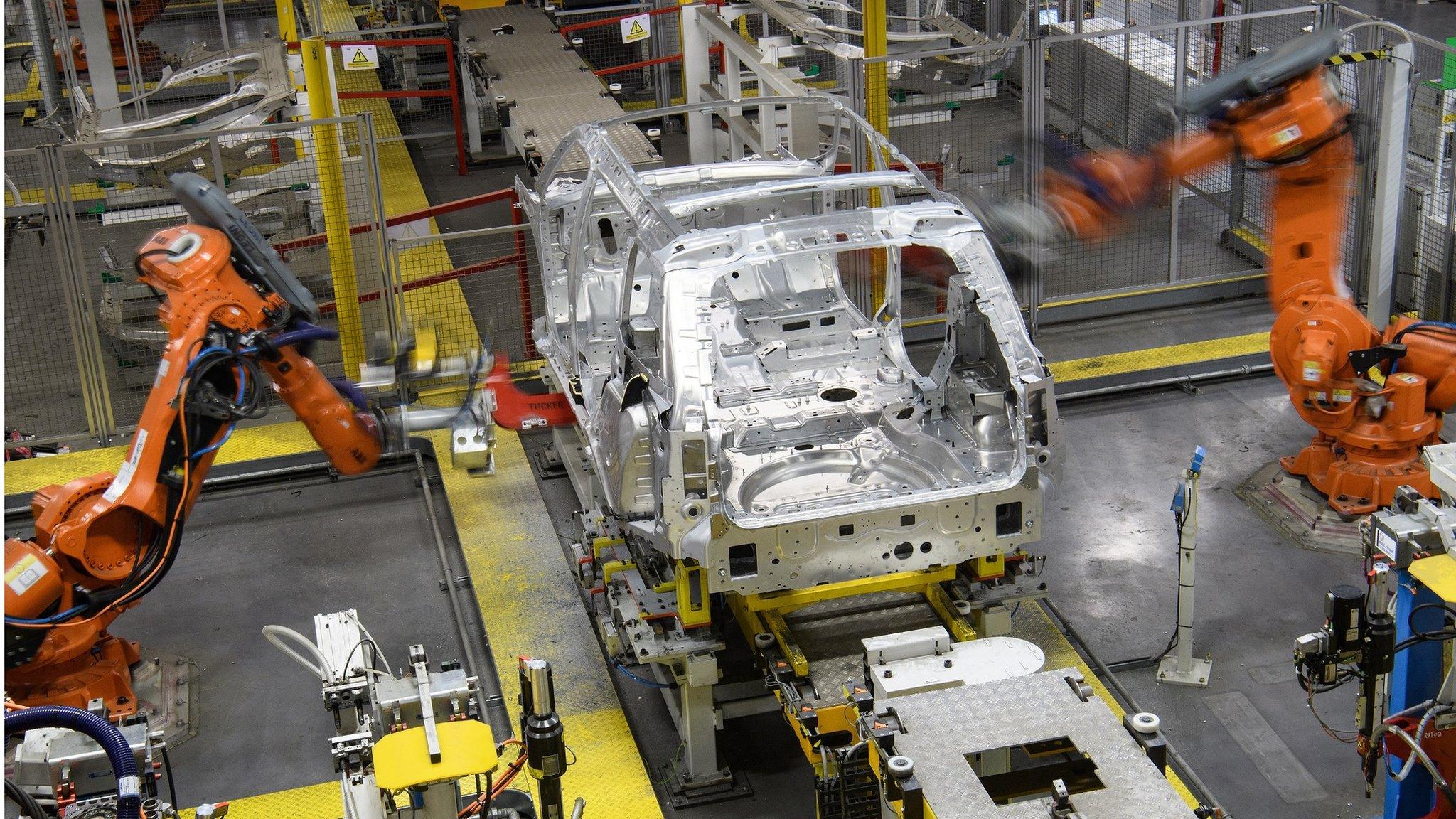Small firms in Wales 'struggle' with long-term planning
- Published

Not many firms could give structured examples of how they organised staff training and development
Many small firms in Wales find it difficult to plan for the long-term future, according to research by Cardiff Metropolitan University.
Experts spoke to 74 firms, ranging from potato producers to pharmaceutical firms, to find out why Wales generates less money than other parts of the UK.
They found small business owners spent most of their time reacting to events or opportunities as they arise.
They also found investment in areas such as software was "woefully low".
Productivity is the amount people produce when they work, so the higher it is, the more money has been generated by that effort.
Wales is one of the least productive parts of the UK and 50% of workers in Wales are employed by micro or small businesses.
The study for the Hodge Research Project was led by professors Brian Morgan and Gerald Holtham and will be presented at a "productivity summit" in Cardiff on Thursday.

Time constraints was one of the reasons given for a lack of focus on improving productivity
In face-to-face interviews with dozens of businesses, many considered they faced numerous challenges - from a lack of information to skill gaps - which was affecting how they performed.
When asked to rank important issues, only 30% rated productivity as top and the study found many firms were "not well versed" in understanding it or making improvements.
Researchers found more than 75% of firms did not measure how productive either their IT systems were or the building space they worked in.
The ones struggling were more likely to be small and new businesses in the service sector and the better-performing firms were more likely to be those who export or are open to international competition or foreign owned.
"Strong strategic management and leadership is an important factor in productivity performance, but many managers do not pay enough attention to it," said the research team in its report, Managing Productivity in Welsh Firms, external.
"This is due to a number of issues such as business size and time constraints."
But it did find a number of firms were committed to the well-being of workers and wider communities and this was "potentially a positive feature" for the Welsh economy.
The researchers said there needed to be education and training for firms "to address their productivity challenge".
Prof Morgan said he believed there should be three regional agencies to focus on business support, linked to the current city deal areas - and aimed at those with the most potential.

Productivity has been a problem for Wales for decades.
Because we produce less, either per person or for each hour we work, that means less money is generated by our efforts and it usually results in lower wages.
It also means the companies and organisations we work for are more likely to have less cash to spend on machinery or training to help get out of the low productivity cycle.
As a community or a nation, having a high proportion of the workforce on low pay results in less being spent in shops and on services. The amount of money around spirals downwards.

What particularly stands out from this report is how few firms are planning for the future or training for the challenges or opportunities ahead.
Our economy is going through massive changes at the moment. A fourth industrial revolution awaits, we are told.
Some jobs we do now are expected to disappear while others emerge. With little emphasis on strategy, it's hard to see how these firms will successfully weather that change, let alone seize opportunities.
The report also suggests a large proportion of firms do not measure how efficiently parts of their business are working.
If Wales is to increase household incomes, it needs to significantly reduce the numbers of people working on low pay - and one clear way to do that is for companies to work more effectively.
- Published19 December 2019

- Published5 September 2019

- Published12 December 2018

- Published30 October 2017
